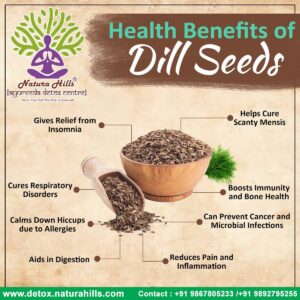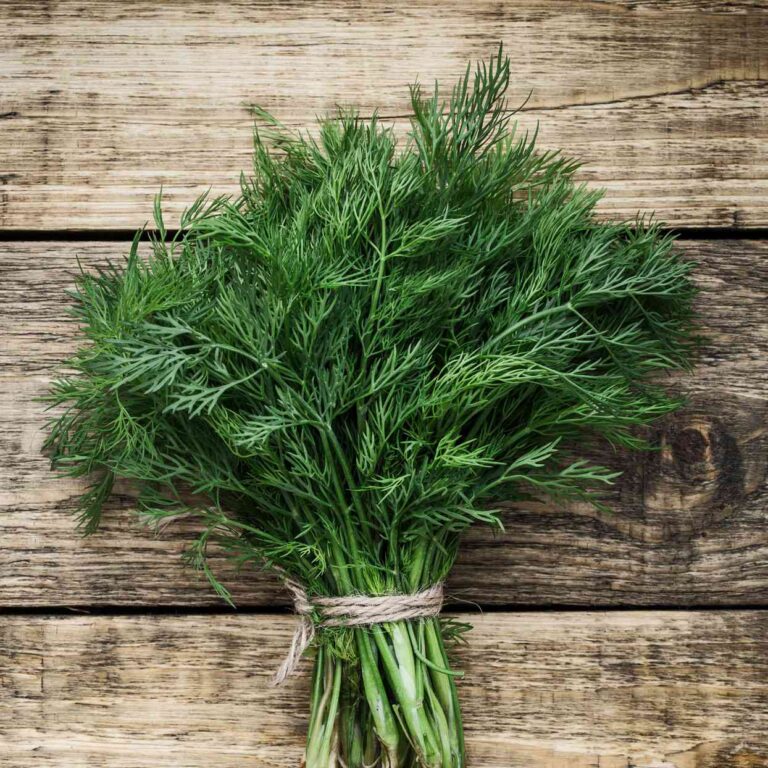Dill (Anethum graveolens)
Dill, also known as dill weed, is a fragrant herb commonly used in European and Asian cuisines. It has slender stems, soft leaves, and aromatic, brown, oval seeds. The leaves offer a mild, grassy flavor, while the seeds are more aromatic with a slight citrus note similar to caraway seeds.
Dill is often paired with dishes like salmon, potatoes, and yogurt-based sauces, enhancing the taste and nutritional value. Beyond its culinary use, dill has a history of being used to treat digestive issues, colic in infants, and bad breath.

Nutritional Profile
- Calories: 4 per 1 cup (9 grams)
- Vitamin C: 8% of Daily Value (DV)
- Manganese: 5% of DV
- Vitamin A: 4% of DV
- Folate: 3% of DV
- Iron: 3% of DV
Dill is rich in essential vitamins and minerals, such as vitamin C, manganese, and vitamin A, which support immune health, vision, and overall wellbeing. Dill seeds also provide valuable nutrients like calcium, iron, and magnesium.
Potential Benefits of Dill
- Rich in Antioxidants: Dill contains flavonoids, terpenoids, and tannins, which protect against oxidative stress, reduce inflammation, and support heart, liver, and brain health.
- Heart Health: Flavonoids in dill have been shown to support heart health by improving cholesterol levels and reducing inflammation, although further research is needed to confirm its effectiveness.
- Blood Sugar Regulation: Dill has been studied for its potential to lower blood sugar levels, with animal studies suggesting beneficial effects.
- Anticancer Properties: Dill contains d-limonene, a monoterpene linked to potential anticancer properties, especially for lung, breast, and colon cancers.
Where It Is Found
Dill is native to the Mediterranean region and commonly found in Europe, Asia, and parts of North America.
How to Grow Dill
Dill grows best in well-drained soil with plenty of sunlight. It can be grown from seeds in your garden or pots. It requires a warm climate and regular watering.
Countries Where It Is Found
Dill is widely cultivated in Europe, Asia, the United States, and parts of North Africa.
Intake Amount and Timing
Dill is typically consumed in small amounts, either fresh or dried. A teaspoon of dried seeds or a tablespoon of fresh dill is enough to add flavor to dishes. You can use dill in salads, sauces, or as a garnish.
Cures and Uses
- Digestive Health: Dill has been traditionally used to relieve digestive discomfort, bloating, and colic in infants.
- Bad Breath: Dill is used as a natural remedy for bad breath.
- Infant Care: Dill tea has been historically used to soothe colic in babies.
Additional Information
Dill is a versatile herb with a long history of medicinal and culinary use. Its rich antioxidant content and potential health benefits make it a valuable addition to your diet.



